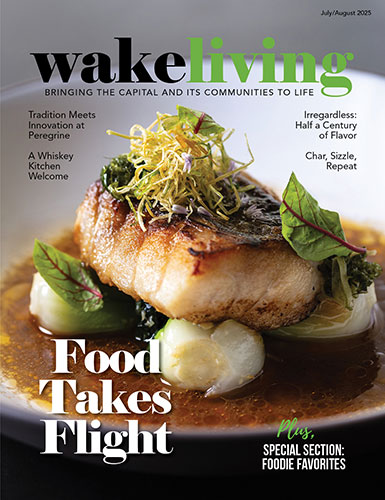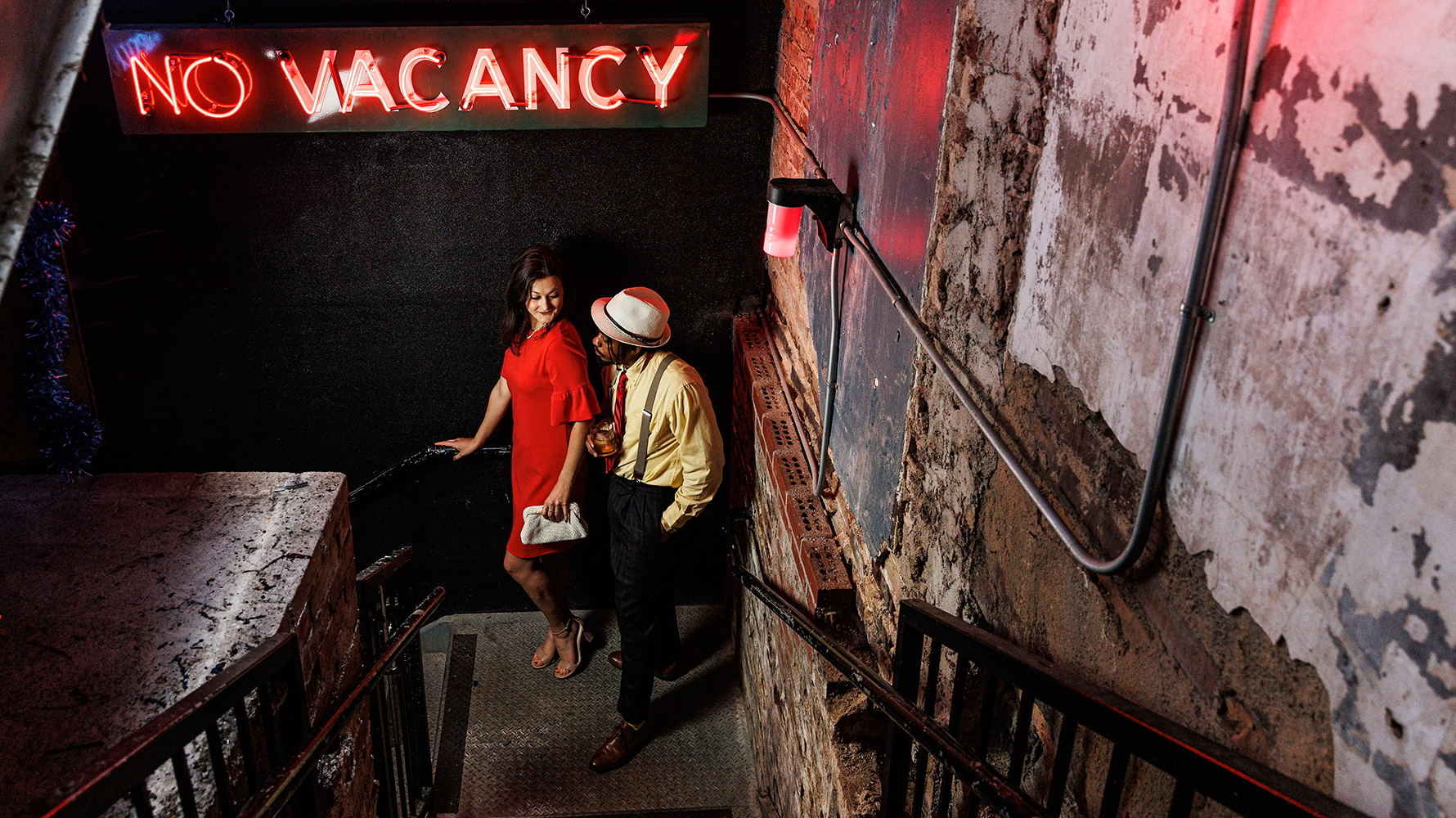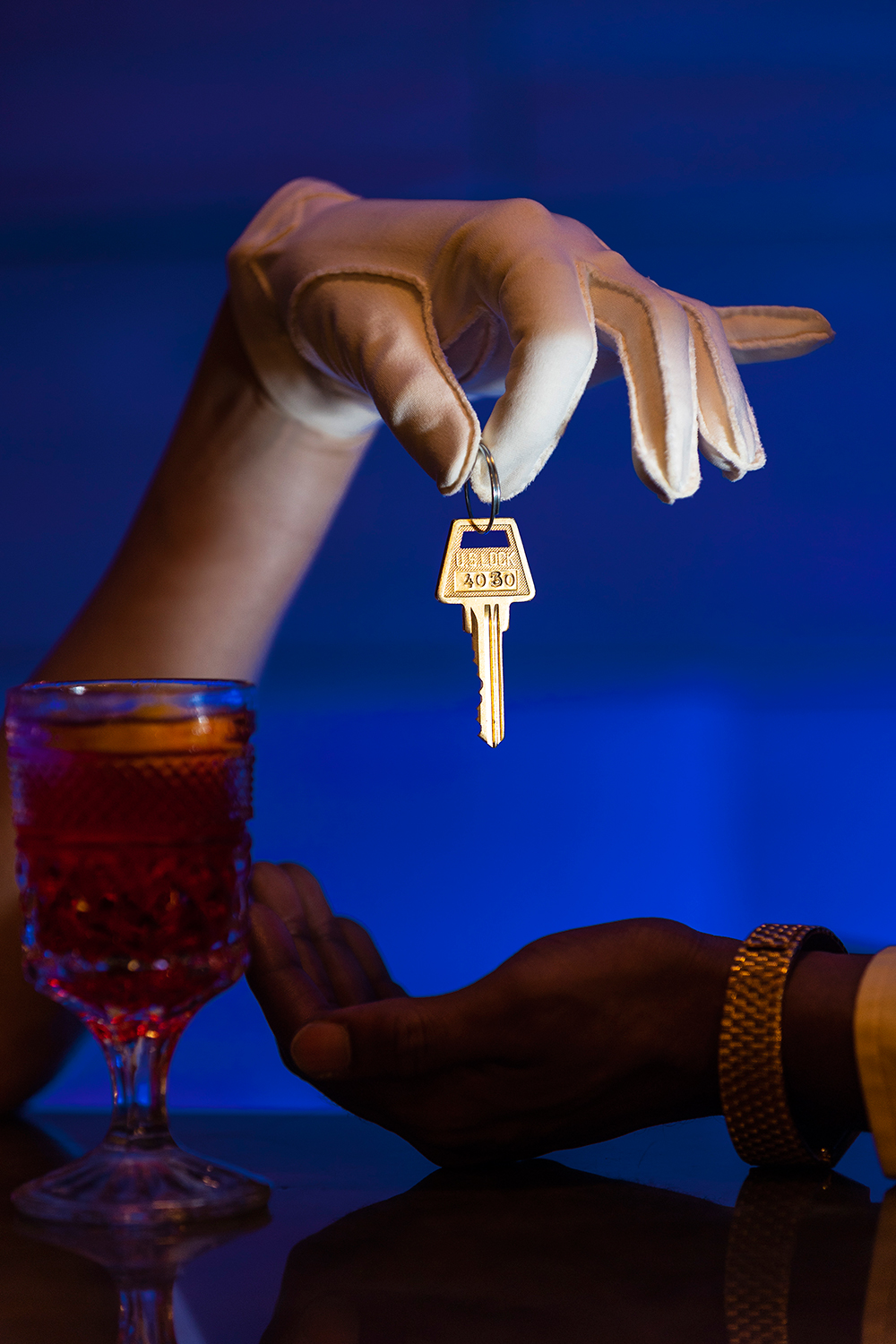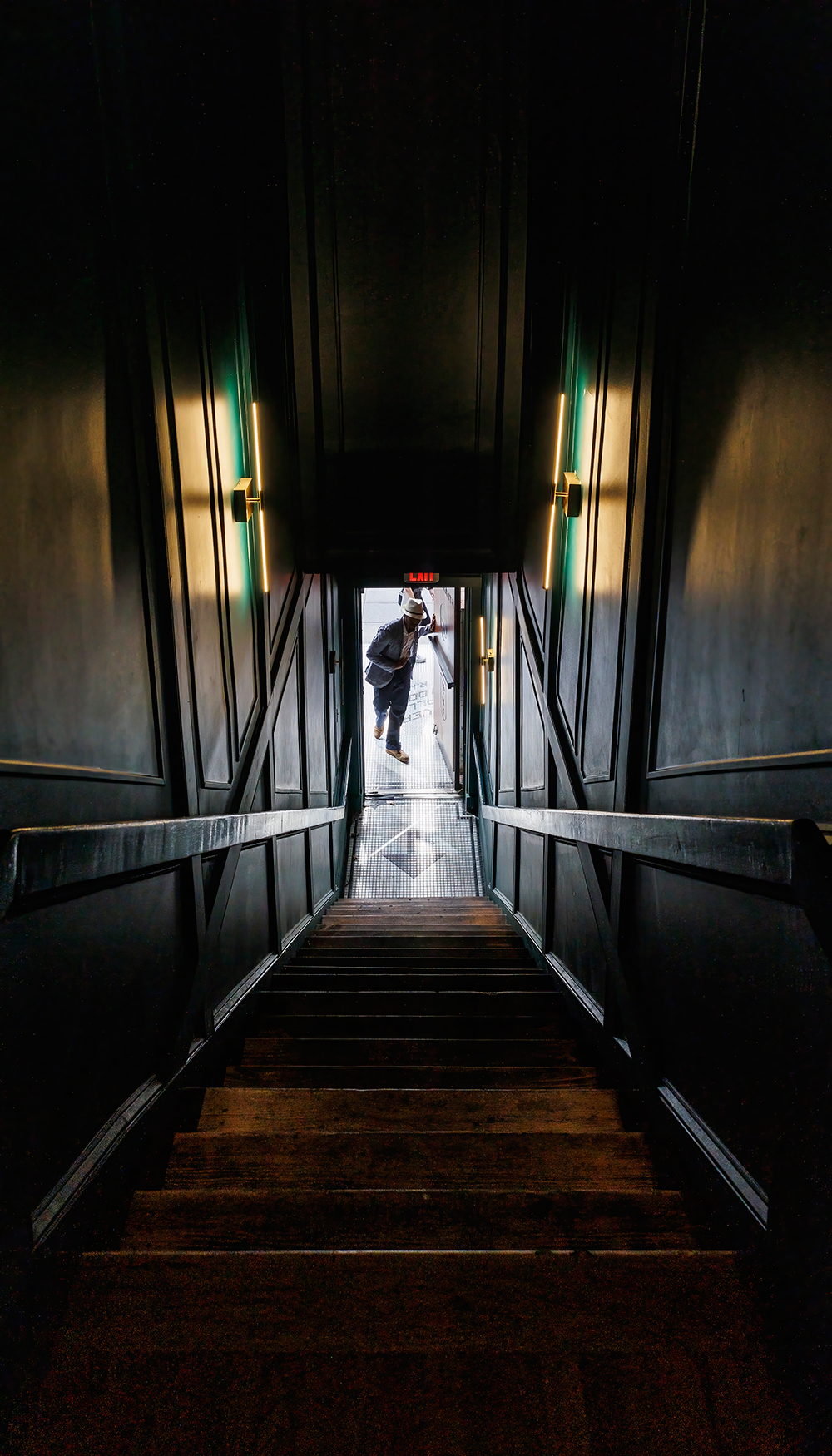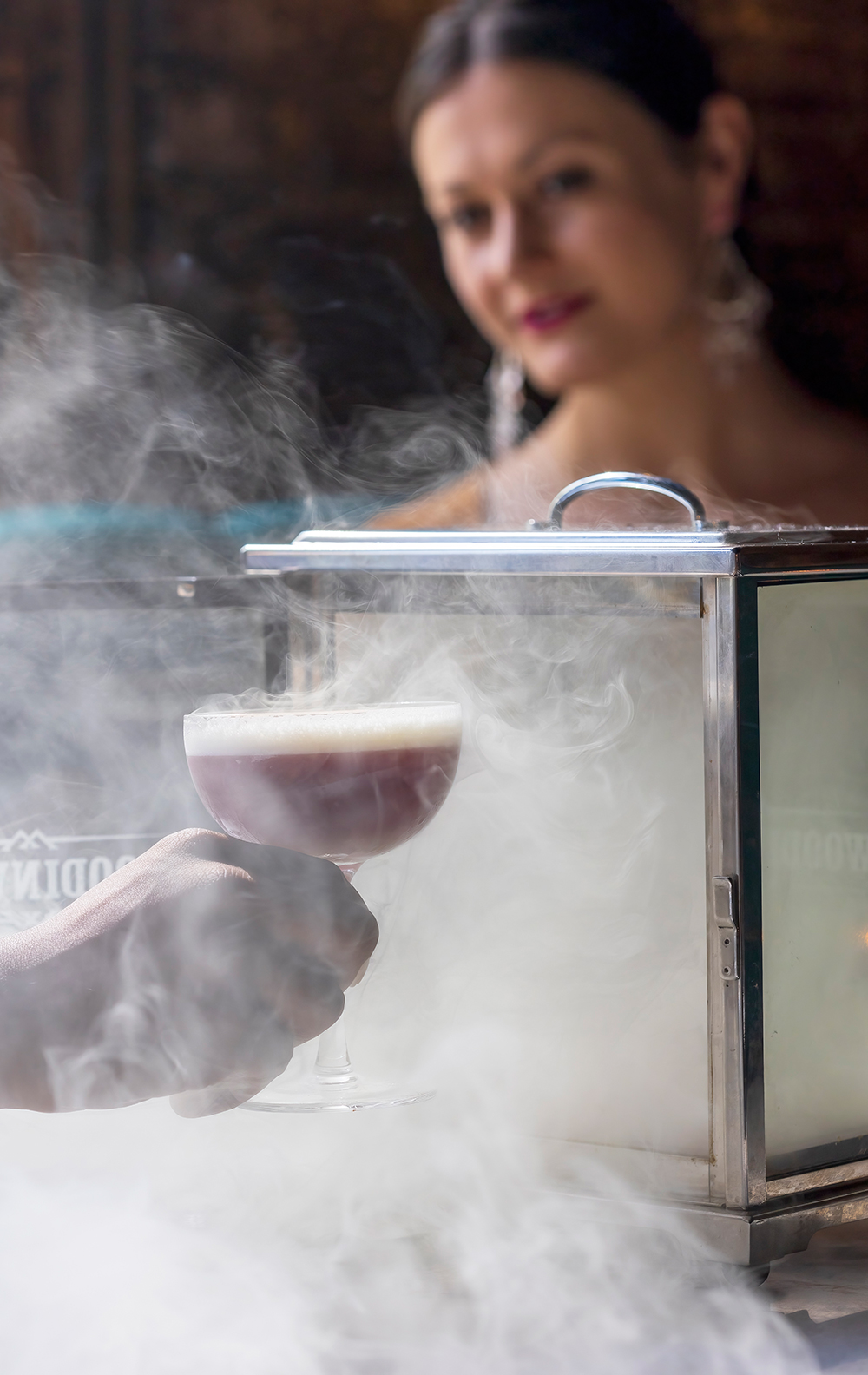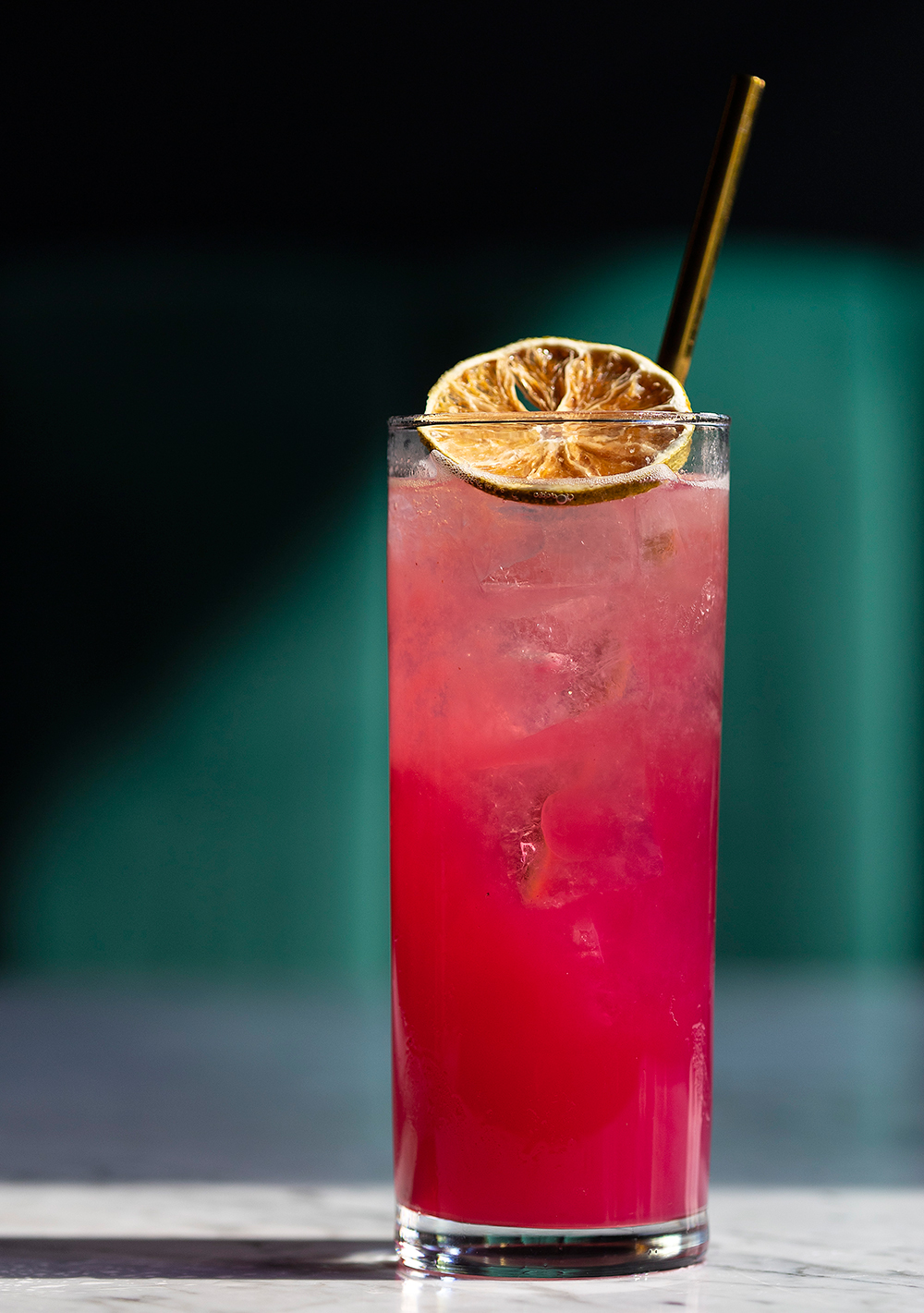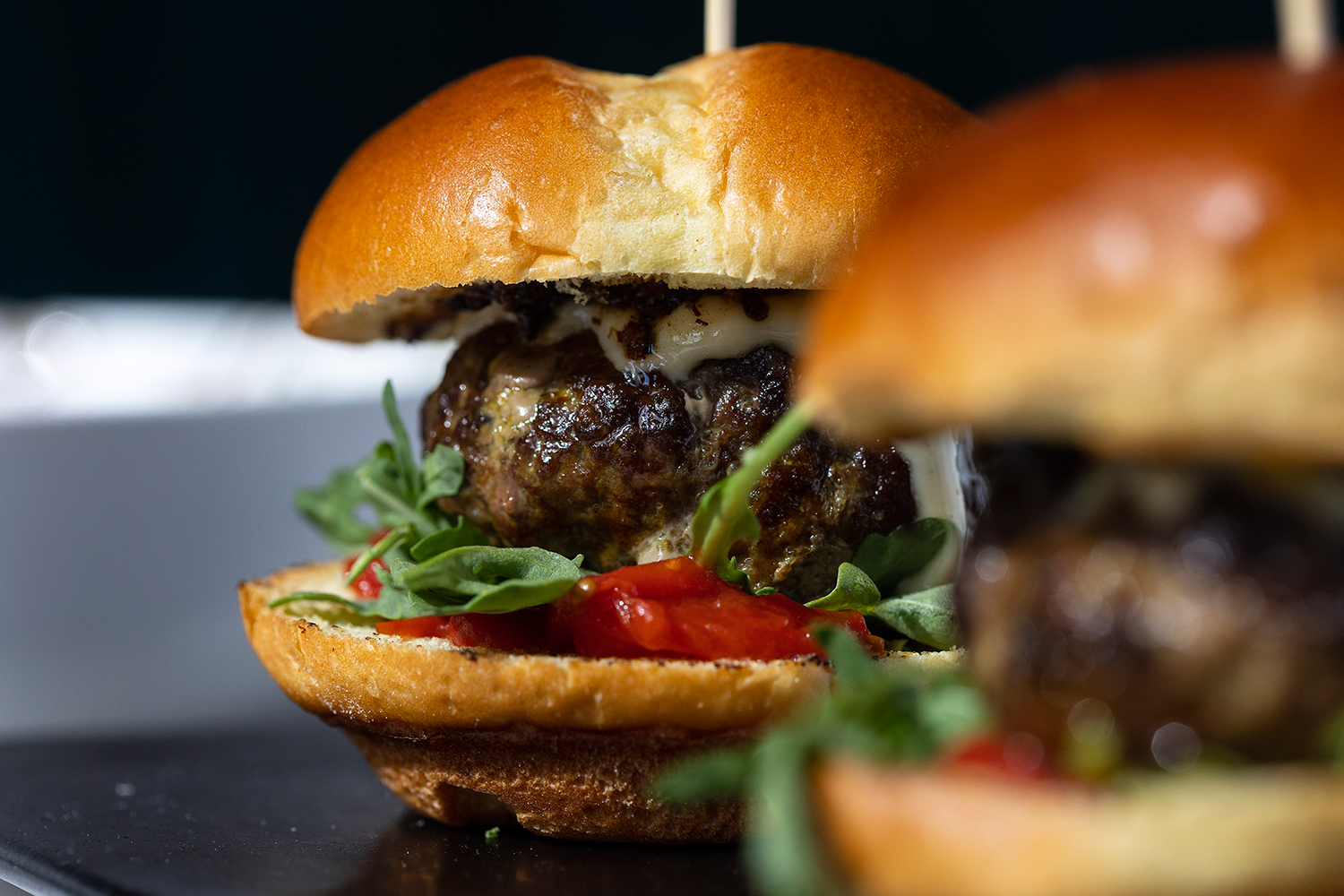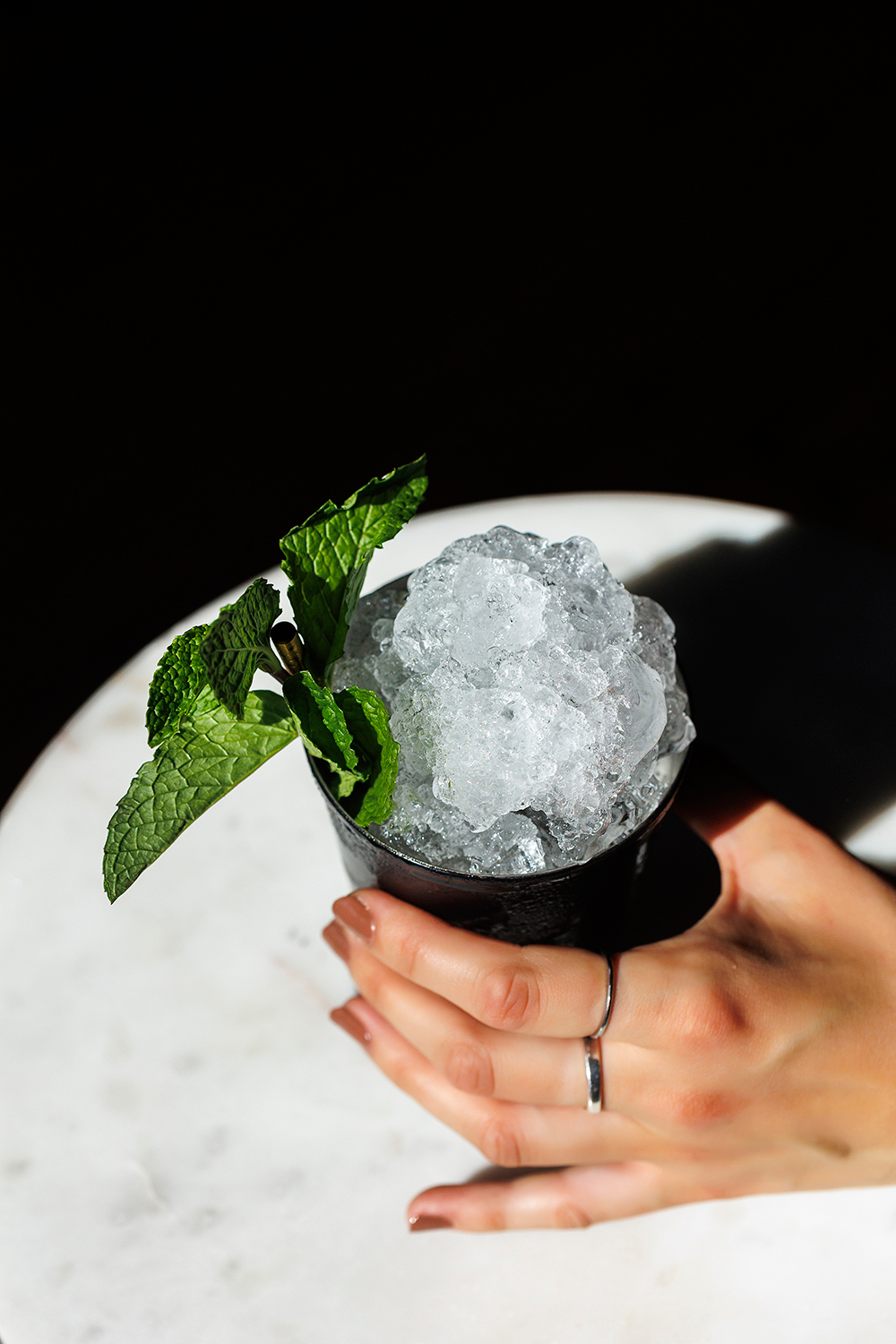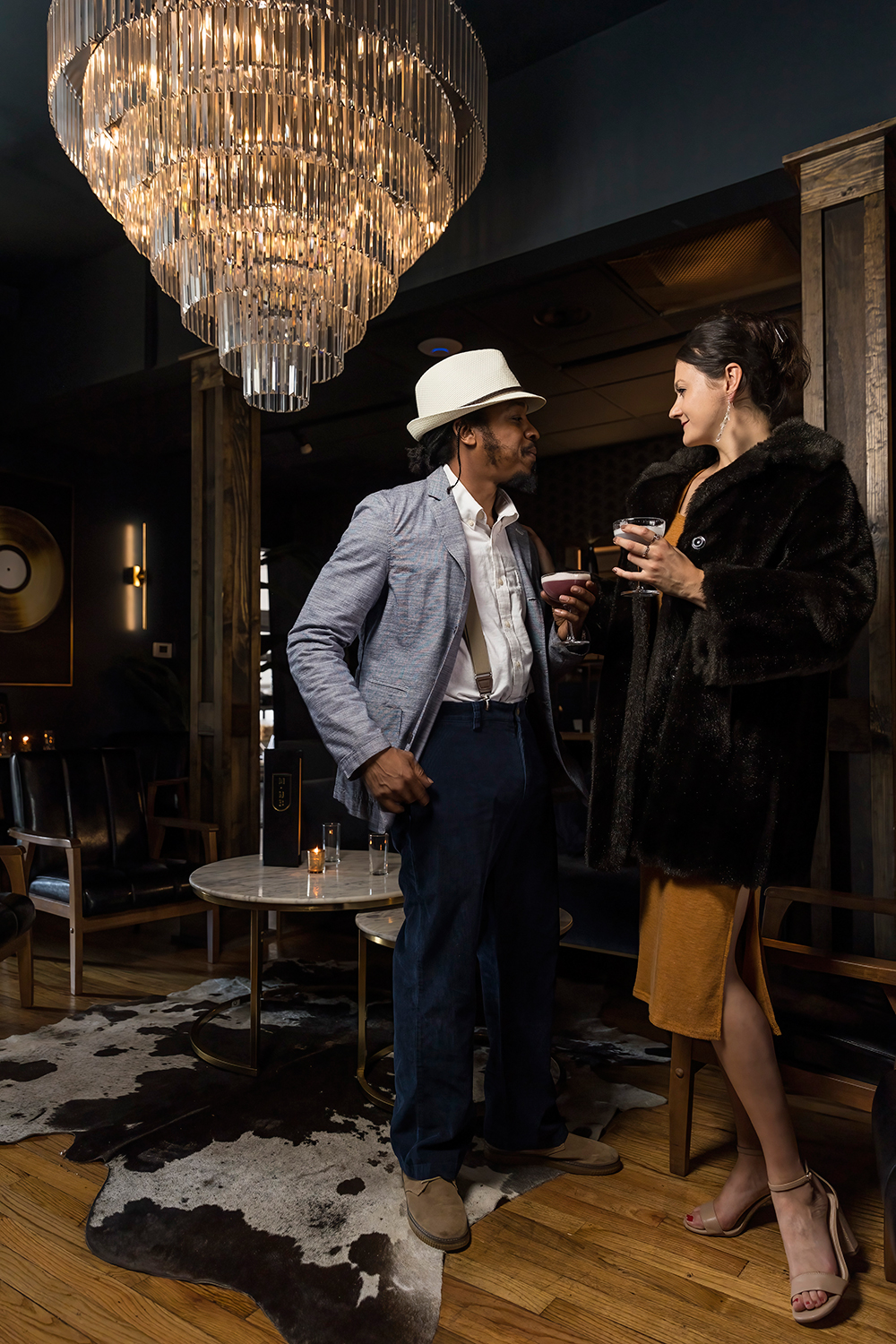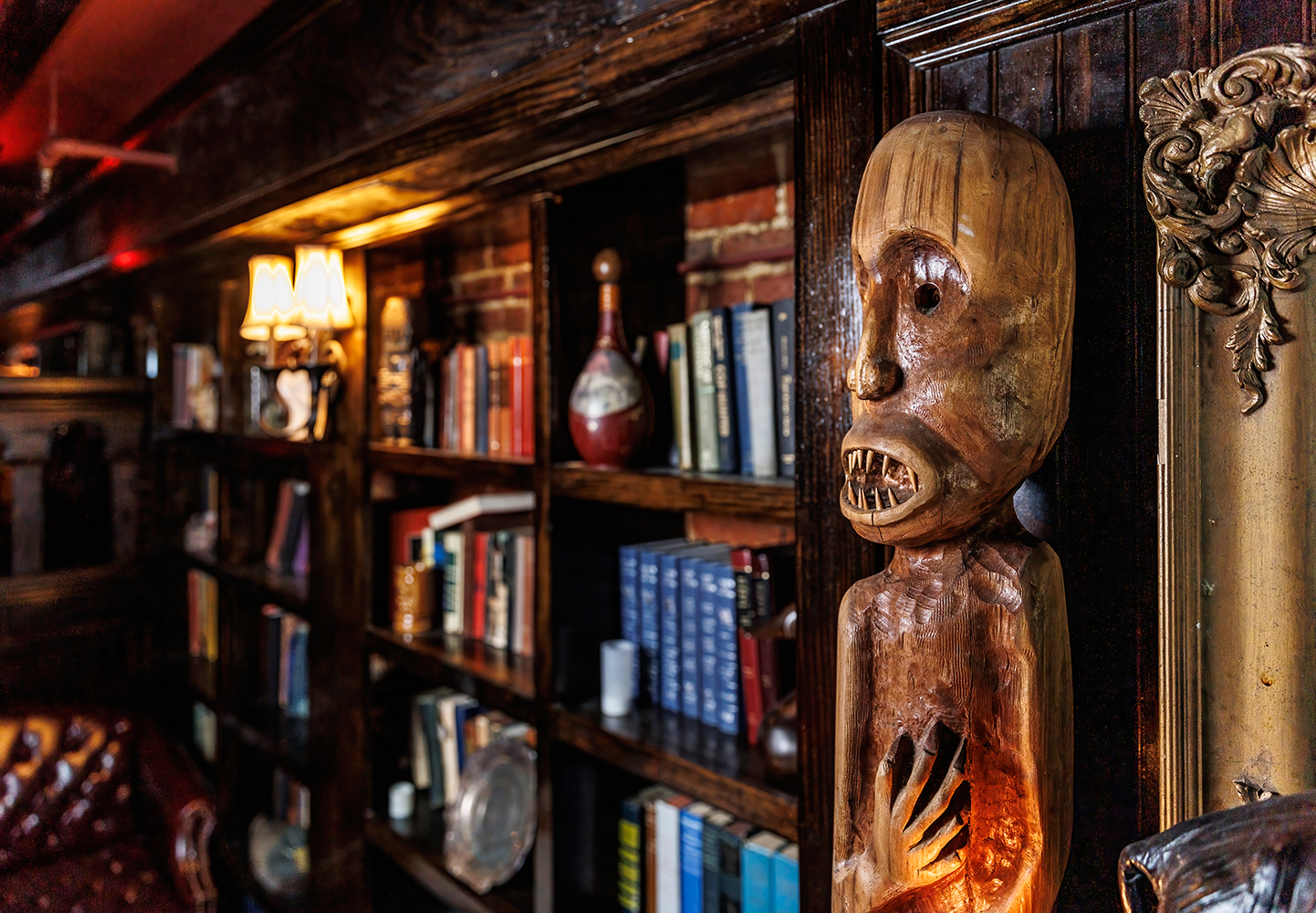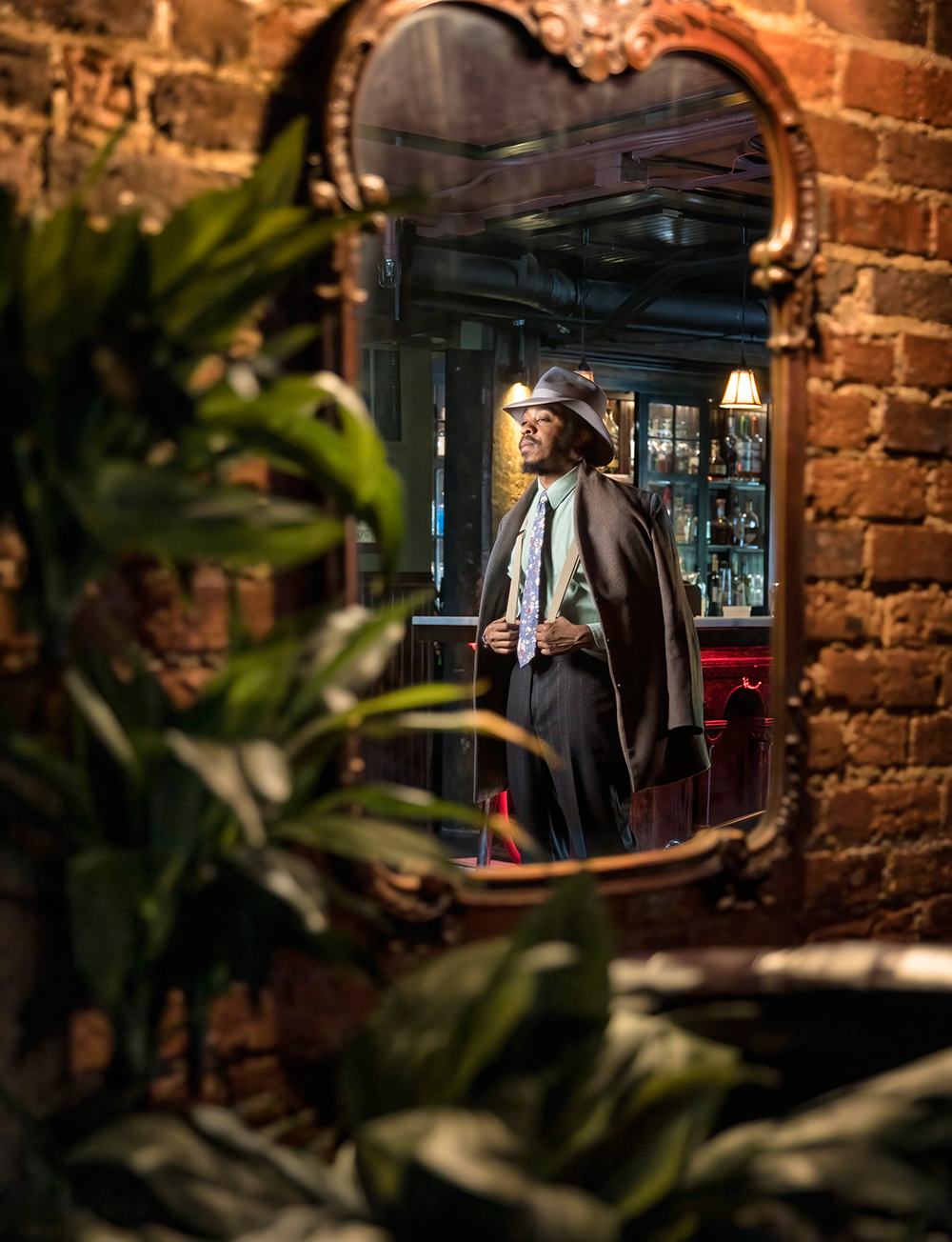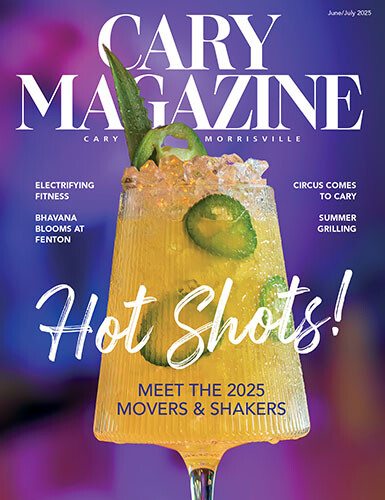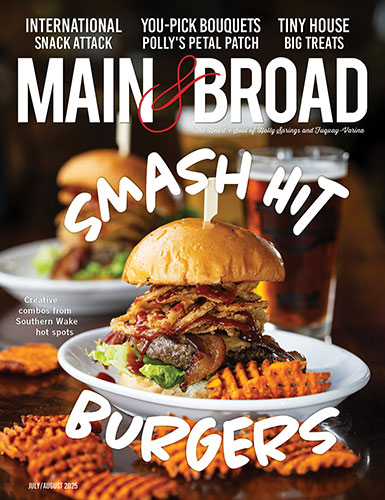Editor’s note: The Atlantic Lounge is now permanently closed.
The Atlantic Lounge, in Raleigh’s Oakwood neighborhood, is home to some of the best craft cocktails in the Triangle. Getting one for yourself is as simple as heading down Person Street, entering the service hallway behind Crawford and Son, making sure the sign above the nondescript door to the bar reads “Vacancy” (as opposed to “No Vacancy”), and heading down the stairs.
Oh, and you need your key.
You see, The Atlantic Lounge is a speakeasy, and being a bit tricky to access is an intentional part of its vibe. The bar is part of a movement to popularize and modernize Prohibition-era classic cocktails along with the intimate, almost-secret ethos that accompanies the speakeasy genre.
The 18th Amendment to the Constitution came into effect on January 17, 1920, and banned the sale, manufacturing, and transport of spirituous liquors across the United States. Until the amendment was repealed in 1933, American drinking culture had to go underground, sometimes literally. The speakeasy was born out of necessity, called so because patrons were advised to “speak easy,” or quietly, about them in public lest they draw the attention of the authorities.
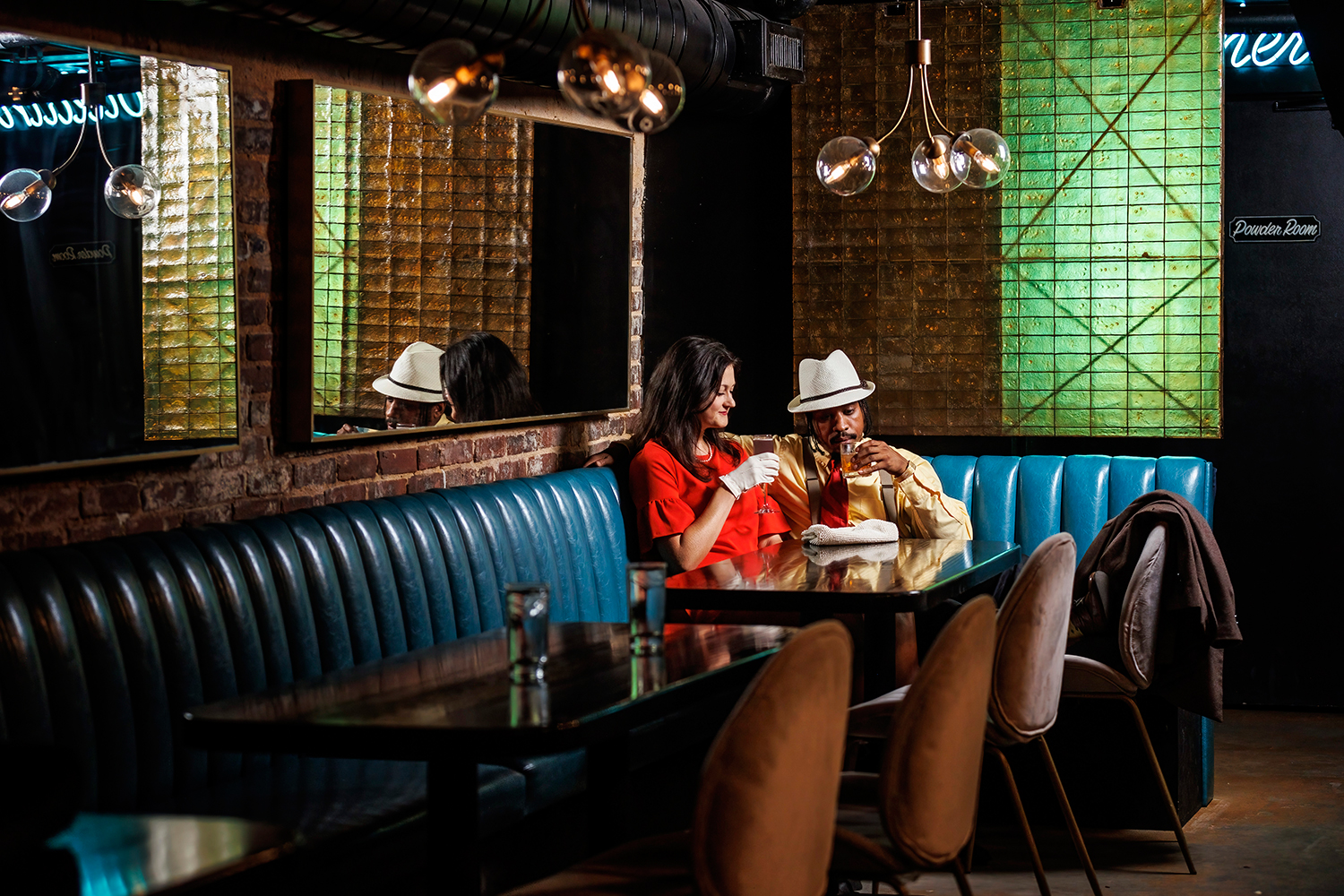
The Atlantic Lounge is an intimate space with room for about 30.
A resurgence in cocktail culture in the mid-2000s brought about a nostalgia for that era — both for the style of spirit-forward cocktails that prevailed at the time and the intimate atmosphere of the bars themselves. A movement began in big cities like New York and Chicago and has since swept all corners of the nation. Craft cocktail bars are back big time, and the speakeasy vibe is coveted by bar owners and patrons alike, albeit this time without the threat of G-men busting through the doors and carting off customers in a paddy wagon.
“I think if you know about [the bar] you feel special, and people just want to feel special,” said Atlantic Lounge owner Jason Howard. “That’s the lure to a speakeasy, just being in the know.”
“The fun thing about speakeasies is how to find them,” noted Patrick Shanahan, co-owner of Watts & Ward. Also located down a set of stairs, Watts & Ward is a speakeasy on steroids, a massive space that houses multiple rooms while also retaining an air of mystery.
When Shanahan was designing the space, he wanted each room to feel distinct. Guests enter into what he describes as a sort of “1930s mudroom,” continuing on to an industrial-feeling bar in the middle, then moving into another bar with turn-of-the-century library vibes, and finishing the night in a Victorian-inspired garden setting.
“I like the idea of transporting people out of Raleigh into a time where it felt a little exclusive,” Shanahan explained.
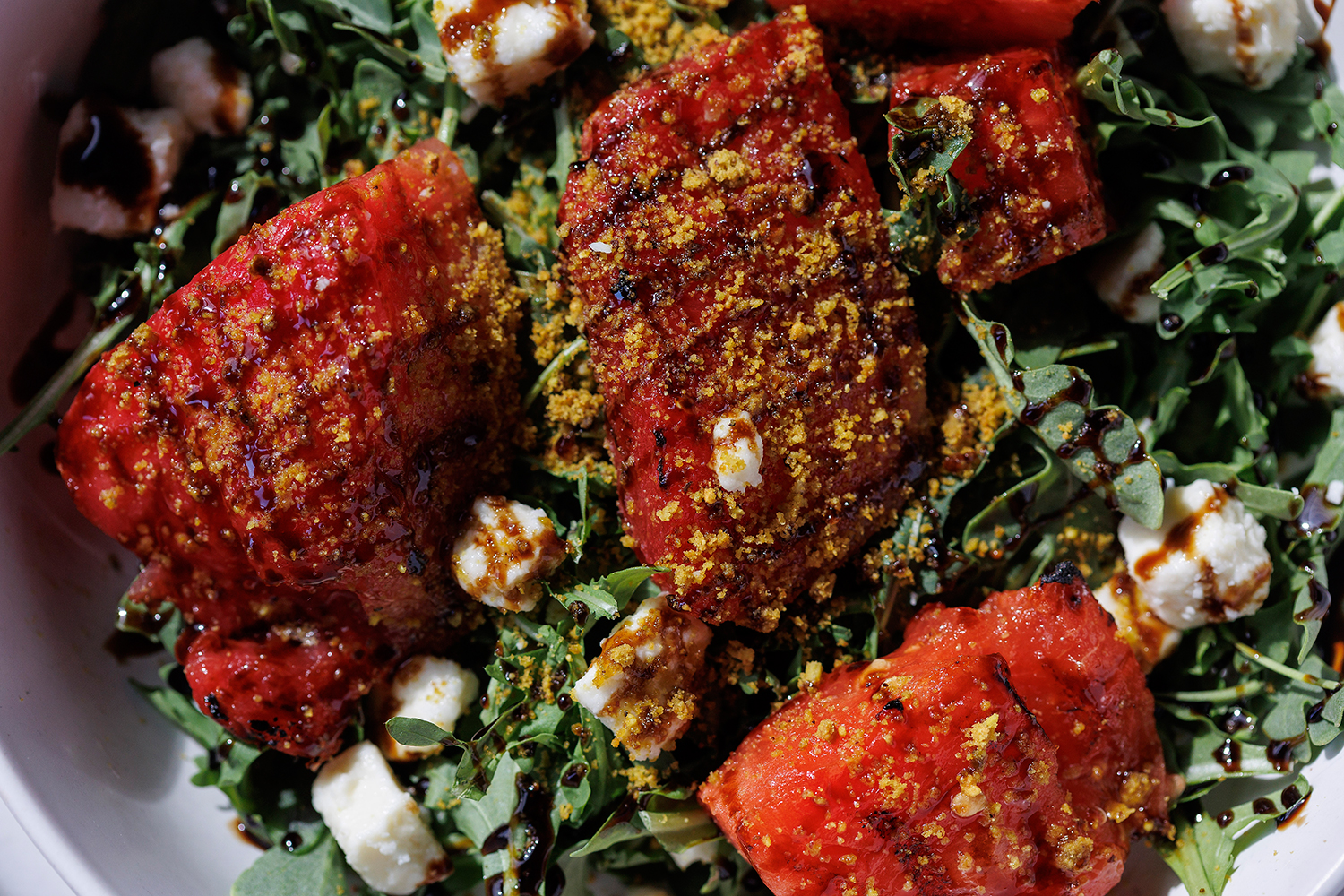
Grilled watermelon salad at The Merchant
For Jon Seelbinder, owner of The Merchant, speakeasies are a natural result of the resurgent interest in cocktails as a true craft. “The cocktail revolution that started happening in the early to mid-2000s, it was just this resurgence of an art that had been lost,” Seelbinder said.
“That cocktail craze flowed into the speakeasy vibe,” he added.
Guests at The Merchant ascend a flight of stairs and enter through a vintage vending machine that doubles as the bar’s door. That sense of secrecy extends to the menu, where the most popular drink is the Smoke & Daggers. The drink is made with Woodinville Whisky, maple syrup, lemon, egg white, and a red wine float. It’s served inside a smoke-filled box, the smoke pouring out as guests open the door to retrieve their cocktail. It’s speakeasy performance art — modern experiential drinking, if you will — and all of it is done with intention.
“The speakeasy thing just creates this feeling of, ‘Wow, I’m in the know. I’m tucked away [behind] this secret door. That’s really cool,’” said Seelbinder.
The cocktails themselves are the true heart and soul of the speakeasy. Without them, there would just be mediocre drinks that are hard to find.
For Shanahan, one of the driving reasons behind creating Watts & Ward was to provide a space for career bartenders to practice their craft.
“These bartenders are taking their craft really seriously,” he said.
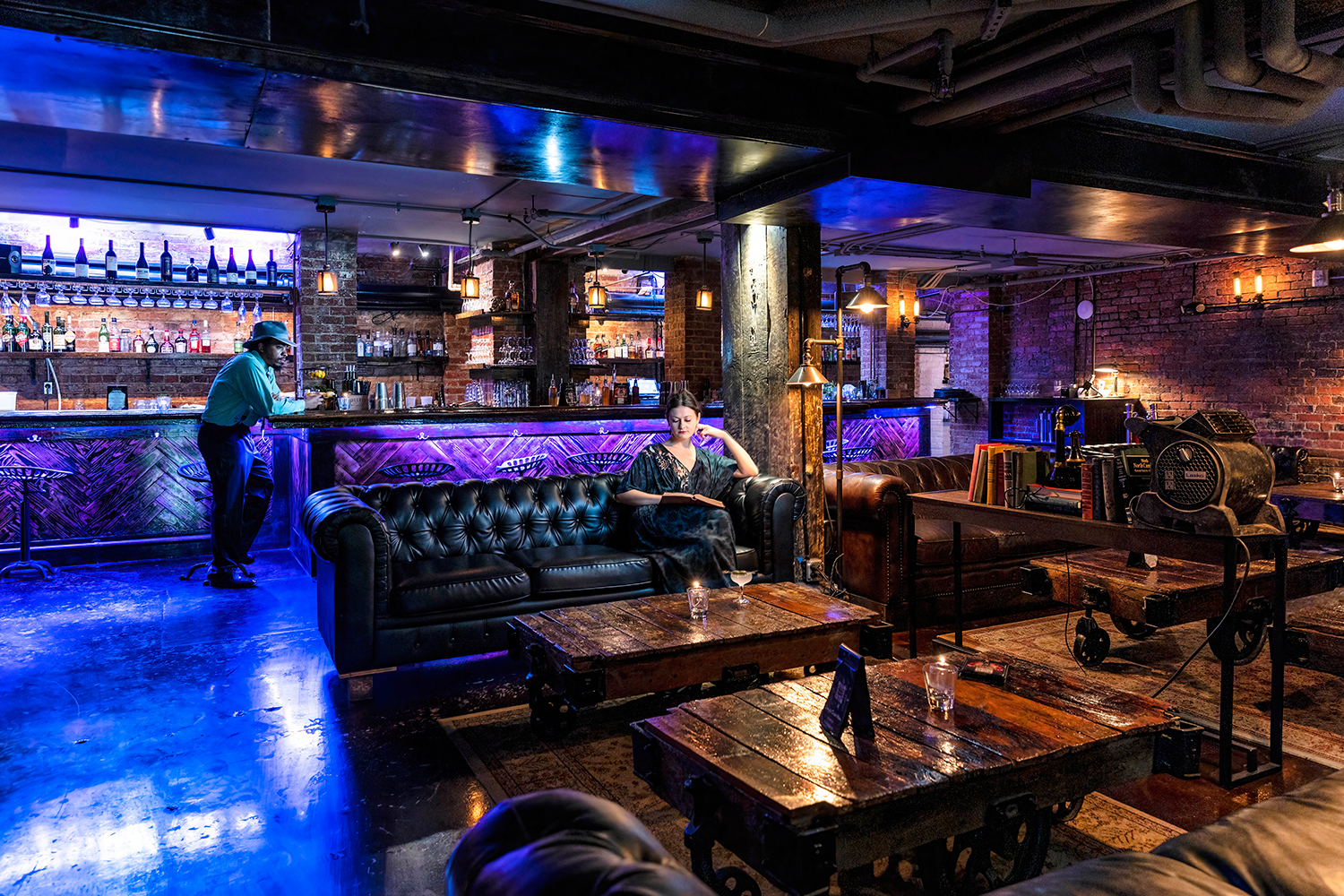
An industrial-style bar in the middle features plenty of seating
With house cocktails like the Watts & Ward Old Fashioned (made with Elijah Craig Private Reserve bourbon), the Moore Square (gin and green chartreuse), and the Cactus Garden (white peppercorn tequila), Shanahan’s team has transformed the large space into a true cocktail lover’s paradise.
“No one believed you could do a speakeasy-style cocktail bar in such a large space,” he recalled. “Everyone thought we were going to fail.”
Back at The Atlantic Lounge, customers are members, and membership comes with the key needed to enter the bar. Bartenders can whip up a drink based on your preference (liquor, style, mood) or mix a classic like a Negroni or Paper Plane. Each keyholder can bring one guest at a time, limiting the number of people at the bar at any one time for a truly intimate experience.
“The key is to keep the bar special for regulars, members,” Howard explained. “It’s kind of a social experiment, to be honest with you,” he said, “but it’s worked out for us.”
At $40 apiece, The Atlantic Lounge has sold around 4,000 keys since opening in 2019, although non-members can try out the bar from 5 p.m. to 7 p.m. each evening. The bar can only hold around 30 people, and Howard encourages members to bring their own records to help set the musical mood.
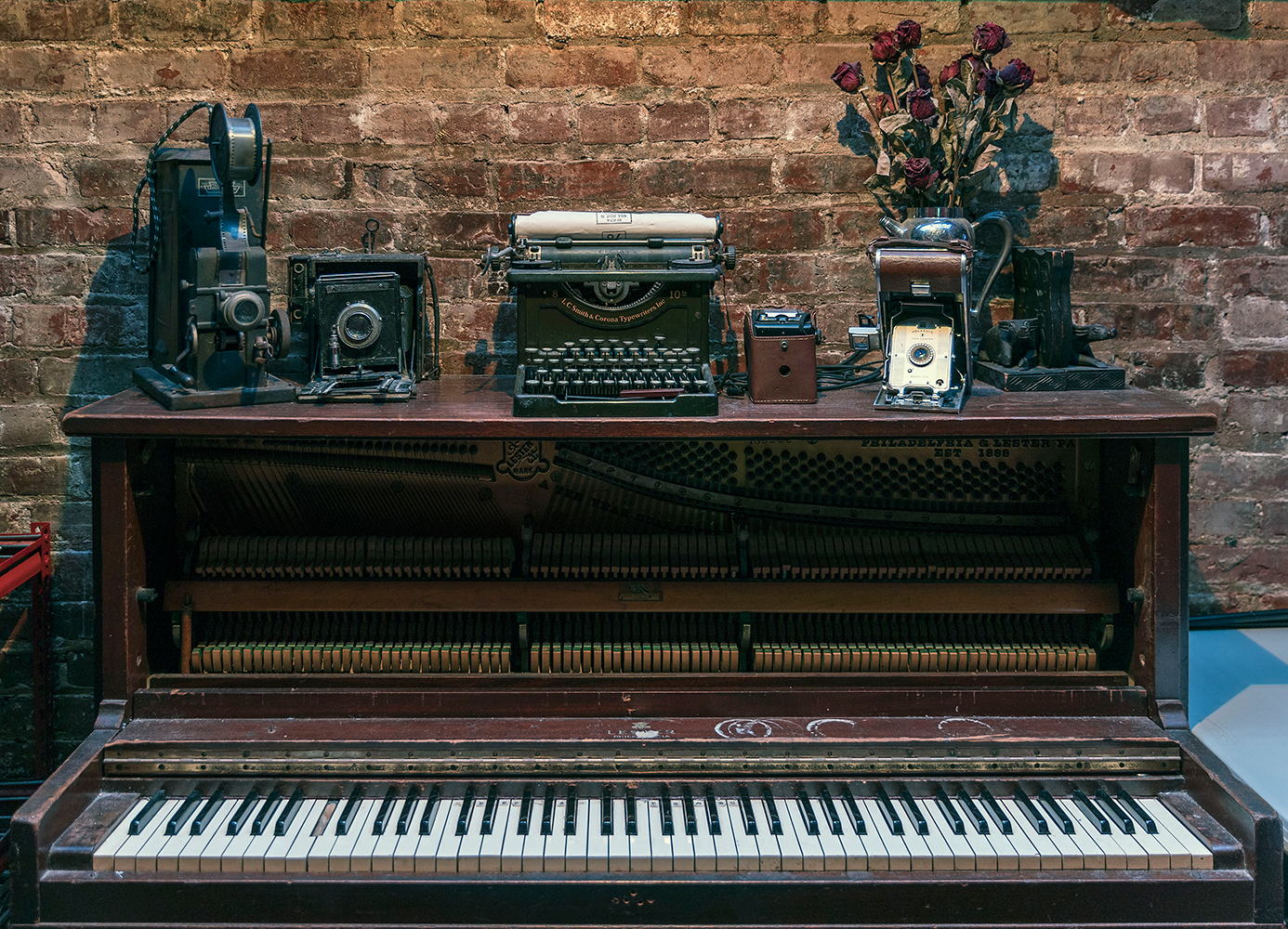
An old upright piano is ready for tinkering
And perhaps that is the true essence of the speakeasy — a home away from home; a place to be a regular; a Cheers, where everybody knows your name, but not everyone knows how to get in. A speakeasy can be whatever you need it to be in the moment.
Prohibition itself only lasted 13 years before the US threw open the doors to the backdoor saloons and basement speakeasies and brought drinking culture back into the open. But the desire for that little, tucked away watering hole has never left our collective consciousness.
“When I first did Watts & Ward, people said [the speakeasy] was a trend,” said Shanahan, “and now we have all of these amazing career bartenders. What comes next is up to them.”
More than a century later, though, it seems that no matter what does come next, the speakeasy is here to stay.
- Local Faces of Fashion
- The Hidden World of Raleigh Speakeasies
- Spooktacular Sights and Sounds
- On the House
- Down the Road: Sylvan Heights Bird Park
- Out & About in Wake County: September / October 2022
- Small Business Spotlight: ShopSpace
- Pay it Forward: Designed for Joy Lifts Women in Crisis
- Celebrated Spirits: Macaluso
- Celebrated Spirits: Fraise Juice from Compass Rose Brewing
- Garden Adventurer: Conversation Piece: The Ginkgo Tree
